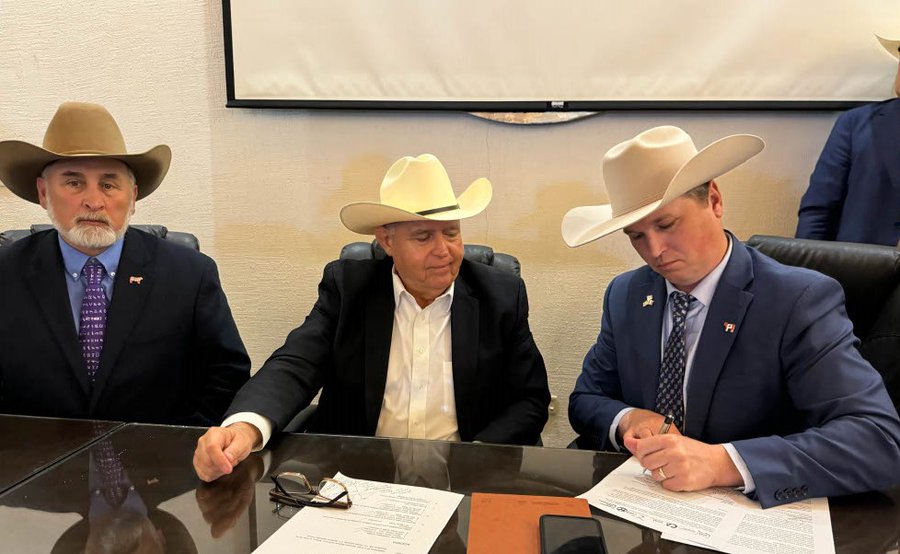Canada, Mexico, U.S. and Australian cattle groups signal support for integrated beef market

The Canadian Cattle Association says a joint statement it signed with its Mexican, U.S. and Australian counterparts signals their intent to work together on challenges the beef industry faces.
“By signing the statement, global leaders in beef production are taking a stance, aligning priorities and working collaboratively on an international scale,” the organization said in an emailed statement.
The memo of understanding, signed at trilateral meetings in Mexico last week, calls on their respective governments to invest in infrastructure and plans to protect the industry from outbreaks of foreign animal disease. It asks governments to promote livestock production as “an effect tool in land and resource management.”
Read Also


Canadian Border Services workers vote to strike
Workers at the Canadian Border Services Agency (CBSA) voted 96 per cent in favour of strike action, according to a statement released by the Public Service Alliance of Canada (PSAC) earlier today.
It also asks authorities to scrutinize lab grown meat and to clearly label it when it’s commercially available.
“The growing global consumer base wants access to safe, nutritious beef, produced from cattle that are sustainably and efficiently raised in a natural environment – not in a bioreactor,” the letter said.
The CCA said voluntary country of origin labelling (vCOOL) and the “importance of our market integration,” it said in a news release.
The new vCOOL rules require meat, poultry or eggs labeled as a U.S. product to come from animals born, raised and processed in the country. It was finalized earlier this year but doesn’t take effect until the beginning of 2026.
The rule was seen as a victory for U.S. ranchers who argued for years that use of the voluntary label by companies who raised animals abroad and only slaughtered or processed them in the U.S. was misleading and disadvantaged domestic producers.
Canada has argued that supply chains operating under the proposed rules will have to segregate Canadian and U.S. animals and products. This would be costly and inefficient and discourage companies from using Canadian inputs.
“close monitoring continues for any segregation of cattle which would impact producers on both sides of the border,” CCA said.
At the close of the tribunal, “it was agreed to turn attention toward the upcoming CUSMA (USMCA) review and the importance of that agreement to all three countries,” they added.
A six-year review of CUSMA is scheduled for 2026.
CCA clarified that Australia had signed on to the memo of understanding at a meeting with the National Cattlemen’s Beef Association in Australia earlier this month.
Source: Farmtario.com

